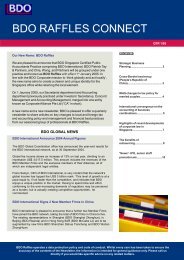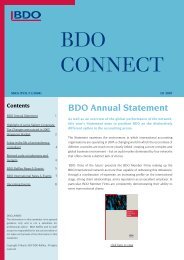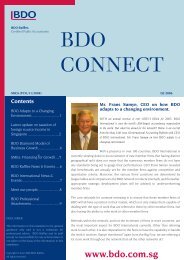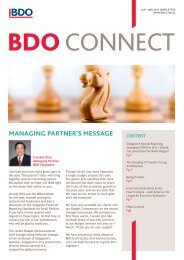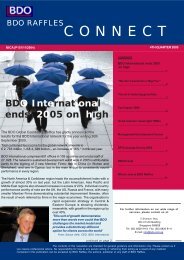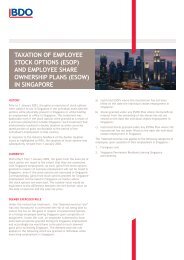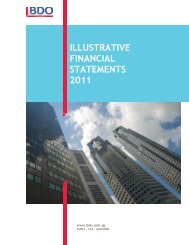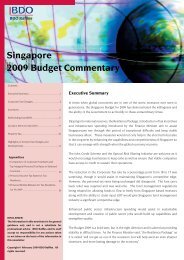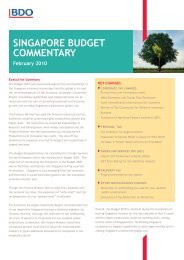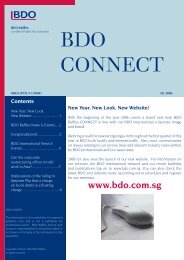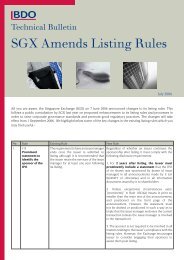auditing china bank balances: common issues and ... - bdo singapore
auditing china bank balances: common issues and ... - bdo singapore
auditing china bank balances: common issues and ... - bdo singapore
You also want an ePaper? Increase the reach of your titles
YUMPU automatically turns print PDFs into web optimized ePapers that Google loves.
Common Issues<br />
Next, we take a look at some <strong>common</strong> <strong>issues</strong> specific to<br />
Chinese companies. Unlike Singapore or Hong Kong, in China,<br />
it is a <strong>common</strong> practice for the authorised signatory for the<br />
operation of <strong>bank</strong> accounts to use of seals in place of h<strong>and</strong>written<br />
signatures. Usually, the minimum two seals required<br />
are the Legal Representative Seal <strong>and</strong> the Finance Seal. Some<br />
companies may choose to have additional seals for better<br />
control of <strong>bank</strong> accounts.<br />
The rationale for the establishment of payment limits is so<br />
that routine <strong>and</strong> less significant payments can be delegated to<br />
certain senior officers in the company, <strong>and</strong> that other unusual<br />
<strong>and</strong> significant payments above a threshold can be escalated<br />
for approval by higher authority, such as the CEO or the Board.<br />
However, if all payments are approved by the CEO, there is a<br />
risk that certain payments may escape proper review due to the<br />
sheer volume of the payments.<br />
The reasoning behind dual <strong>bank</strong> signatories is for proper<br />
segregation of duties; to not allow any one person to have full<br />
access to the <strong>bank</strong> account. However, in the context where<br />
seals are used in place of signatures, even with dual signatory<br />
imposed, the intended control can be overridden if both seals<br />
are being kept by an individual, or if an individual has access to<br />
both seals. A reason often cited for dual signatory practice is<br />
to faciliate operational expediency, so that payments could be<br />
processed easily without having both officers in custody of the<br />
seals review <strong>and</strong> approve the payments.<br />
Companies usually work within limitations by establishing<br />
mitigating controls such as internal payment authorisation<br />
limits, regular management reporting to head office, as well as<br />
ad-hoc reviews from head office personnel or other professionals<br />
so as to keep local management in check. A culture <strong>and</strong> the<br />
conduct of good corporate governance can help mitigate these<br />
limitations, but could take considerable education <strong>and</strong> effort to<br />
cultivate.<br />
Bank signatories are usually allowed to transact any amounts<br />
without any limits imposed. Banks in certain provinces may only<br />
recognise a single set of authorised signatories for <strong>bank</strong> cards<br />
regardless of the payment amount. However, more <strong>bank</strong>s in more<br />
larger cities such as Shanghai or Shenzhen do accept instructions<br />
for different set of signatories for different payment limits.<br />
Kwek Wee Heng<br />
Senior Manager<br />
Risk Advisory Services<br />
weeheng@<strong>bdo</strong>.com.sg<br />
Direct: +65 6828 9117



